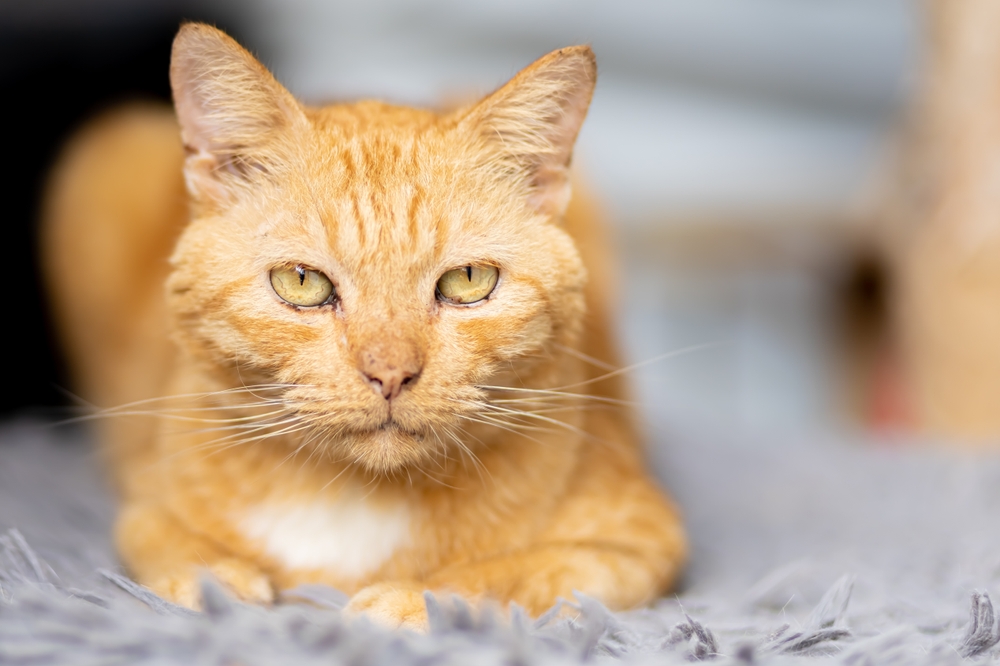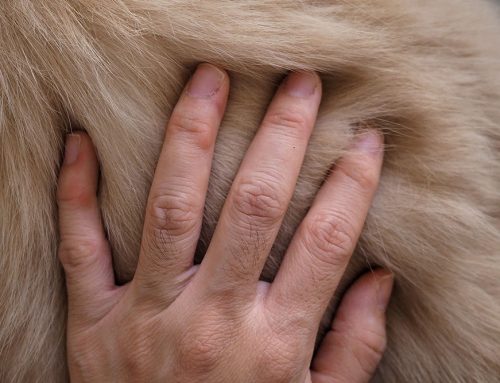As pets age, many owners notice that their once energetic and playful companions become less active and more subdued. This gradual slowing down can be attributed to physical and behavioral changes that occur with aging. Our Guam Pet Hospital team wants you to understand these changes so you can ensure your senior pet receives the veterinary care they need so they can enjoy a good quality of life.
Physical changes in senior pets
Older pets may experience changes to their physical well-being, including:
- Joint and muscle degeneration — One of the most common reasons older pets slow down is because of joint and muscle degeneration. Osteoarthritis, a condition that causes joint cartilage to wear away, is prevalent in aging pets. This condition leads to pain and stiffness, making movement challenging. Additionally, muscle mass naturally decreases with age, which can further impact a pet’s mobility and energy levels.
- Decreased energy levels — As pets age, their metabolism changes and often slows down. This decrease in metabolic rate can result in reduced energy levels and a tendency to sleep more. Older pets might not have the same stamina they once did, leading to shorter playtimes and longer rest periods.
- Dental issues — Older pets often suffer from dental problems such as gum disease, tooth decay, and tooth loss. Pain and discomfort from periodontal disease can make eating and playing less enjoyable, leading to decreased activity.
- Sensory decline — Aging can also affect a pet’s ability to hear and see, making them less responsive to stimuli. Pets with sensory decline might avoid activities that once brought them joy because they find them disorienting or uncomfortable.
Behavioral changes in aging pets
Along with physical changes, your furry friend may experience behavior issues that can be related to growing older such as:
- Changes in sleep patterns — Senior pets often experience changes in when and how much they sleep. They might sleep more during the day and become restless at night, and altered sleep cycles can reduce their overall activity levels.
- Disinterest in play — Older pets may lose interest in certain games because of physical discomfort or changes in their cognitive function. Disinterest can signify physical and mental aging, affecting their overall engagement in activities they once enjoyed.
- Cognitive decline — Like people, pets can experience mental decline as they age. This condition, often called canine or feline cognitive dysfunction syndrome (CDS or FCDS), can affect a pet’s memory, learning, and awareness. Pets with cognitive decline might seem confused or disoriented, which can influence their activity levels and behavior.
Health conditions common in senior pets
While aging is not a disease in itself, many older pets do have common medical conditions that our Guam Pet Hospital team can help treat and manage, including:
- Chronic illness — Chronic illness, such as diabetes, and kidney or heart disease, can impact a pet’s energy levels and overall well-being. Managing these conditions requires veterinary care and may involve adjustments to your pet’s lifestyle and activity levels.
- Pain — Pain, whether from arthritis or other sources, can cause your pet to avoid activity. Managing your furry pal’s pain through medication, physical therapy, or other treatments can help improve their comfort and activity levels.
Helping your senior pet thrive

Your senior pet can still have an excellent quality of life through the following supports:
- Veterinary wellness exams — Frequent veterinary exams are instrumental in monitoring your senior pet’s health. Our veterinarian can assess and manage age-related conditions, provide pain relief, and recommend appropriate treatments to help maintain your pet’s quality of life.
- Appropriate exercise — While your older furry friend may not have the same energy levels as before, regular, low-impact exercise is still essential. Short walks, gentle play, and activities that are easy on their joints can help maintain their physical health and mental stimulation.
- Comfort and care — Providing a comfortable living environment with an orthopedic bed and easy access to food and water can significantly improve your pet’s quality of life. Paying attention to your pet’s needs and making necessary adjustments can help them remain content and comfortable.
Aging is a natural process that changes your pet’s physical health and behavior. Understanding why your older pet begins to slow down and addressing their needs with appropriate care and support can make a significant impact on their well-being. Schedule your senior pet’s wellness exam with our Guam Pet Hospital team so we can help ensure they continue to lead a happy and fulfilling life.








Leave A Comment